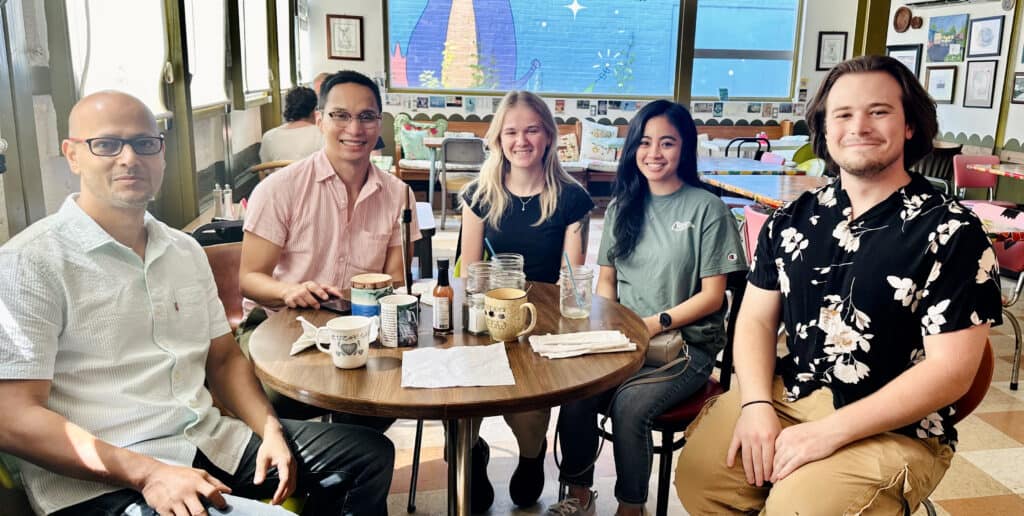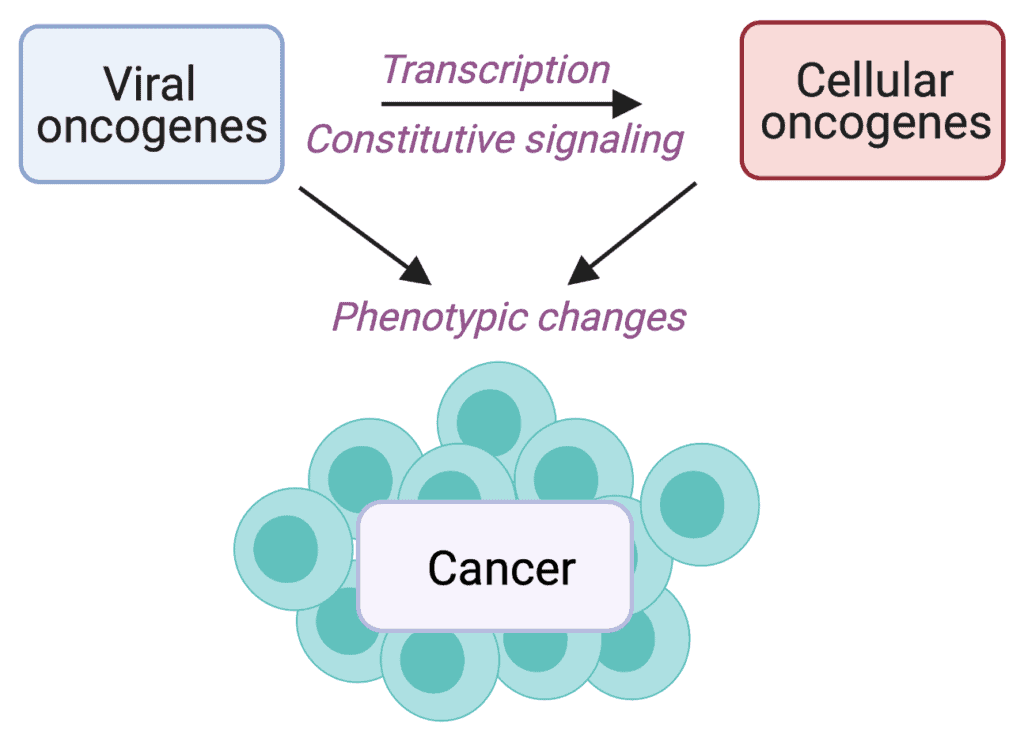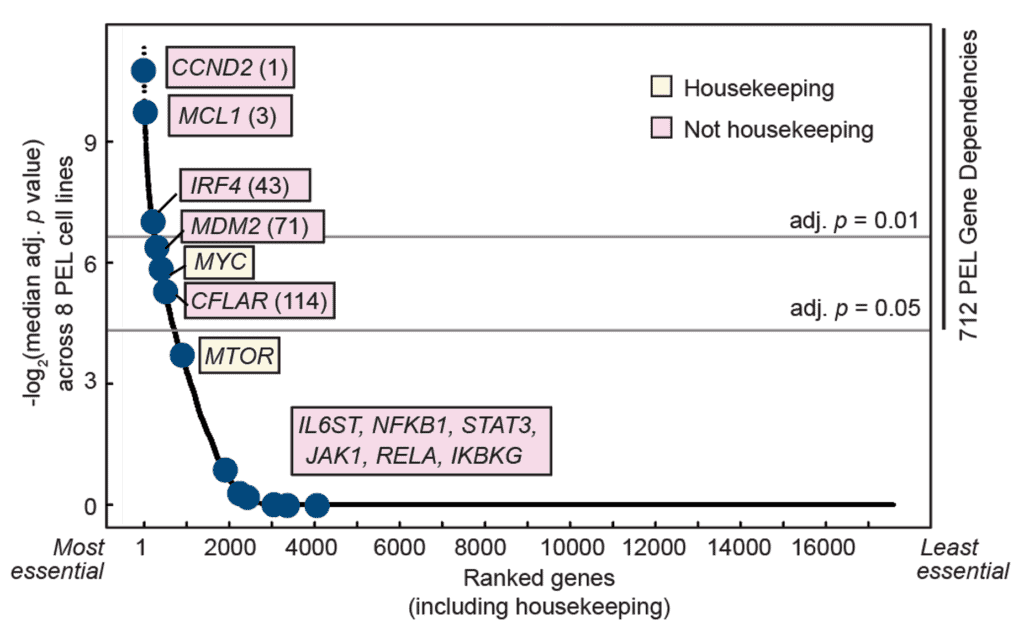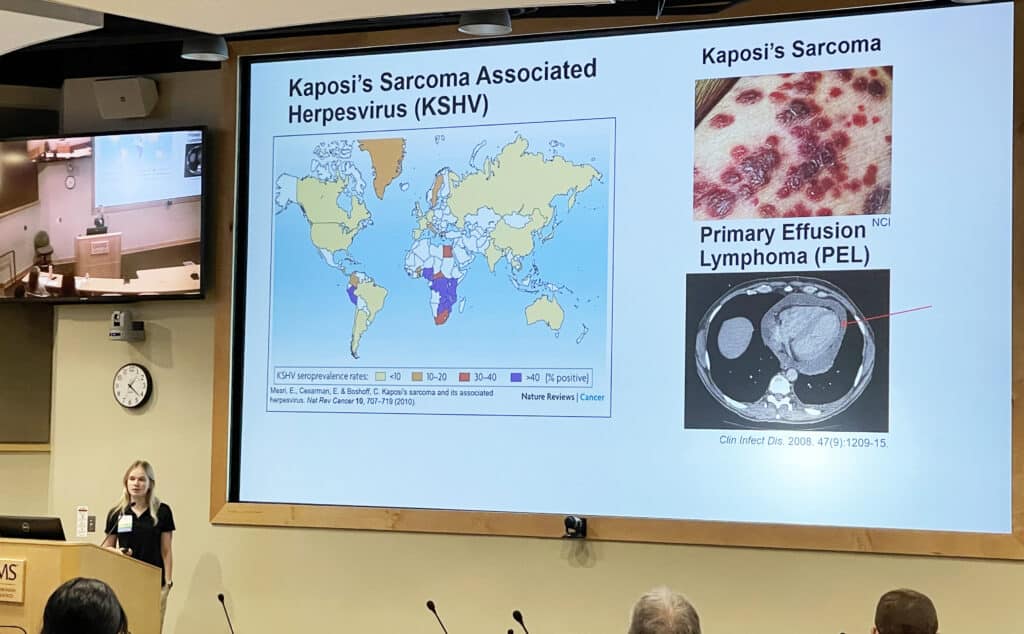
Research
~20% of all cancers are caused by viruses. We study the Kaposi’s sarcoma-associated herpesvirus (KSHV), also known as the human herpesvirus 8 (HHV8). KSHV is known to cause several malignancies and lymphoproliferative disorders in the context of immunosuppression (e.g. in people living with HIV, post-transplant patients). Two of these AIDS-defining cancers are Kaposi’s sarcoma (KS) and primary effusion lymphoma (PEL). To date, no vaccines or drugs have been approved to prevent or treat these diseases.

Our lab aims to understand the molecular mechanisms of viral oncogenesis by KSHV using molecular and genome-wide approaches. Areas of specific interest include:
Regulation of Chromatin Organization and Transcriptional Programs. While the KSHV genome encodes >100 genes, only a subset of these viral genes has been directly studied in the context of PEL. We designed CRISPRi (transcriptional inhibition) and CRISPR/CasRx (RNA knockdowns) screens to systematically interrogate the contributions of viral transcripts in the survival of PEL tumor cells in a high throughput manner (think of 10,000++ unique knockdowns in one experiment!). We discovered a new long non-coding RNA and currently studying its role in maintaining the latency and lytic transcriptional programs.
Cell Biology. We previously demonstrated that PEL cell lines are addicted to the expression of 210 cellular genes called PEL-specific oncogenic dependencies (Nature Communications, 2018). We are investigating the functions of these oncogenes in altering cellular metabolism and protection from different types of cell death including apoptosis and ferroptosis.

Latest News
January 22, 2025
- Our collaborators from the Forrest Lab published their study in Nature Communications with contributions from Mark.
January 1, 2025
- Lucus Carreira (GPIBS Ph.D. student) joins the lab. Welcome!
November 8, 2024
- Allie (INBRE ’24) is selected to present her summer work as one of 6 Biology talks (chosen from 150+ abstracts) at the Arkansas INBRE Conference.
September 23, 2024
- We have two new preprints in bioRxiv including our MCL1-MARCHF5 project which our INBRE students have worked on the past year!
- The Mitochondrial Ubiquitin Ligase MARCHF5 Cooperates with MCL1 to Inhibit Apoptosis in KSHV-Transformed Primary Effusion Lymphoma Cell Lines (Prasanth, Justine, Jax, Aly, Allie, Daniel, Mark)
- Cytotoxicity of Activator Expression in CRISPR-based Transcriptional Activation Systems (Mark)
July 26, 2024
- Allie finishes her INBRE Summer Internship in the lab. She presented her work at the Arkansas Undergraduate Summer Research Symposium last July 24. Her abstract was one of twelve chosen from 53 submissions to give an Oral Presentation in the main session (see below). Way to go Allie! And we are lucky to have you in the lab!

